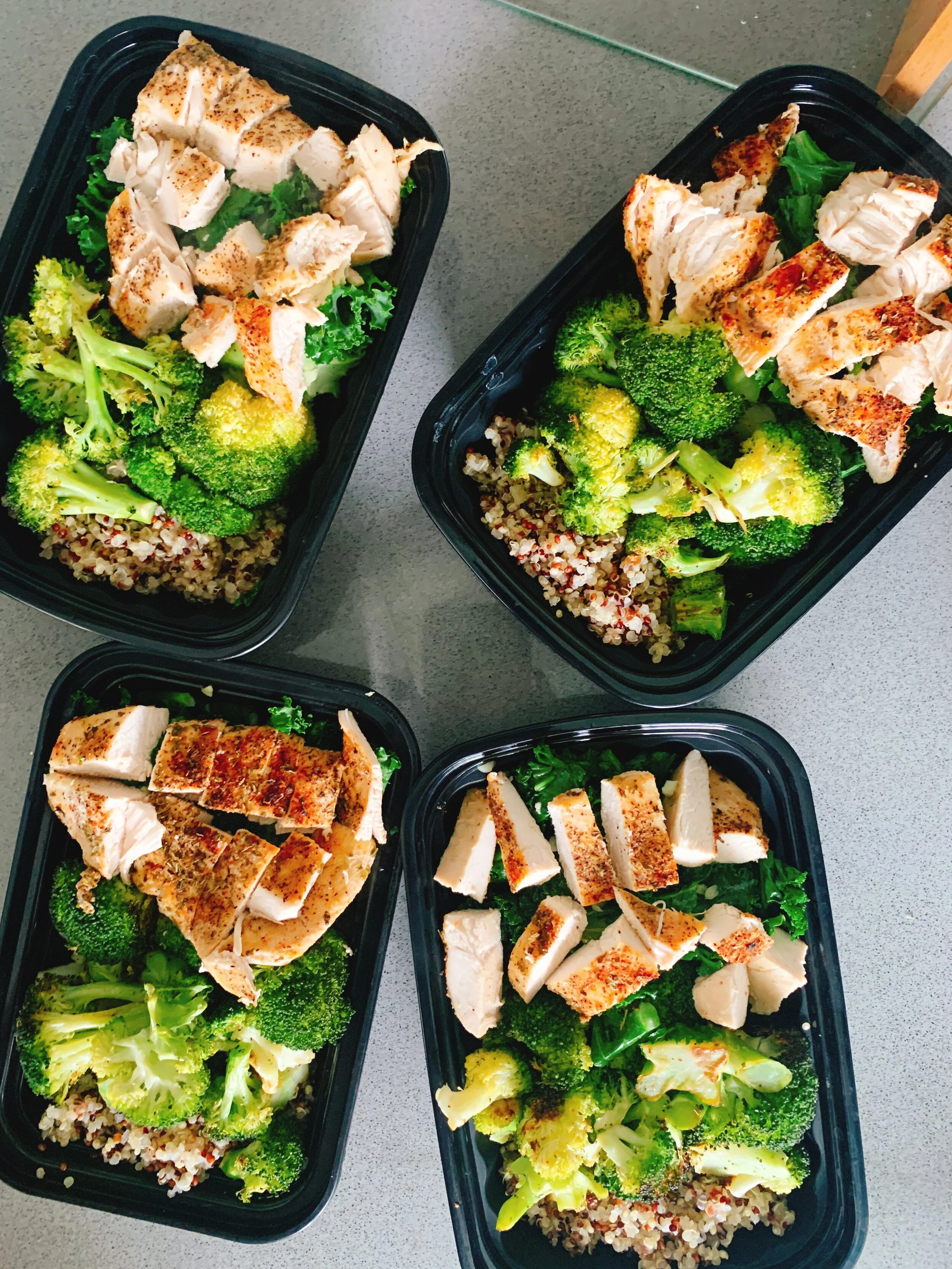Caffeine and Performance
As I am writing this, I have about 2 cups of coffee running through my veins and I’m sure many of you can relate. I can confidently say ‘many of you’ because a recent survey says 85% of the U.S. population regularly consumes caffeine and mostly in the form of COFFEE. So, it’s safe to say caffeine consumption is common, but how beneficial is it, and what is the best source?
Today you can find caffeine in all types of forms such as coffee, tea, carbonated beverages, energy shots, bars, gels, nasal sprays, and even chewing gum. Coffee beans have been around since almost the dawn of time but caffeine’s safety and effects have only been extensively studied for a little over 100 years (which is not very long) So we are constantly learning new things as science improves. Let’s take a look at what is known:
Currently, the Mayo Clinic reports a healthy adult can safely drink up to 400 mg of caffeine a day (4-5 cups of coffee) without adverse health effects.
Caffeine is widely known for its ability to reduce feelings of fatigue while improving mood, alertness, and physical performance.
Similar findings have been seen in athletes, who often use caffeine as a reliable resource to enhance physical performance, prolong exhaustion, and blunt feelings of soreness.
Today there are so many new caffeine products on the market, as mentioned earlier, and so it can be hard to decipher which is safe. So let’s dive into some different sources!!
Coffee: Coffee is the most common way to consume caffeine around the world. Most coffee is sourced from arabica shrub and naturally contains caffeine, carbohydrates, lipids, vitamins, minerals, nitrogenous compounds, and isoflavonoids. Outside of caffeine, coffee beans contain compounds such as chlorogenic acids, polyphenols, and other bioactive compounds (cafestol, kahweol) that offer many health benefits. Chlorogenic acid has antibacterial, antifungal, and antiviral properties. Polyphenols act as antioxidants and improve blood flow. Best results for improved athletic performance are seen when 1-2 cups of coffee are consumed about an hour before movement. Coffee provides the same physical enhancement as any other type of caffeine consumption as well as other health components. The downside is it might not be appealing to drink that much before a workout and can potentially cause digestive upset.
Caffeine Powder (Anhydrous caffeine): A highly concentrated caffeine, extracted from the coffee plant. A teaspoon of this potent powder is equivalent to 28 cups of coffee!! Since the concentration is so high, an overdose is a possibility. The FDA Trusted Source advises people to avoid powdered caffeine and has issued warning letters to 5 powdered caffeine manufacturers.
Carbonated Beverages / Energy Drinks: Typically seen with taurine and glucose. The effect of caffeinated energy drinks on athletic performance has not been extensively studied, so it is hard to draw conclusions about this delivery form.
Caffeinated Sports Drinks: These products have been thoroughly studied and have shown to outperform solely carbohydrate-electrolyte products when it comes to performance-enhancing effects.
Chewing Gum: Caffeine in the form of chewing gum is absorbed rapidly through receptors in the mouth. This can be beneficial for sporting situations when rapid absorption is necessary and the non-ingestive method may serve athletes that experience gastrointestinal distress around exercise. Especially because caffeine can act as a gastric irritant.
Nasal Sprays and Mouth Aerosols: Delivered quickly to the bloodstream through the nose or mouth, might stimulate nerves connected to the brain. However, there are limited studies on these products and their caffeine dosage has shown to be non-impactful. There is also a concern for the safety of these products, if caffeine is administered in much larger doses than recommended, quick absorption might allow rapid delivery of caffeine to the heart and cause a potential overdose.
So now that the different types are out there, let’s look further into what else you should know about caffeine when it comes to your health and performance. Once it hits your mouth, what happens next? When consumed, it is absorbed in the small intestine and stomach within 45 minutes. Once in the bloodstream it stimulates the nervous system, increases energy, and gives drowsiness a kick in the butt! In addition, we have neurotransmitters (dopamine, norepinephrine and adrenaline) that intensify the effects of caffeine. So, how does this impact your health and performance?
Habitual Intake Can Diminish Effects:
If you’re like me and drink coffee or other caffeine products regularly, you may need to be aware of how much you are consuming. Studies have shown that performance enhancement from caffeine consumption dwindles with habitual use. However, if you stay below 300 mg (3-4 cups) of caffeine a day you should be able to slightly increase your consumption of caffeine before the physical event and still experience the same type of performance boost!
Note: Decreasing consumption to increase sensitivity does not improve caffeine’s effect on performance, however it can bring symptoms of withdrawal (headaches, sleepiness, irritability) which may be of importance if you are preparing to compete. So what does this mean? This means if you drink 7 cups of coffee normally or the equivalent (~700 mg caffeine/day), decreasing to 4 cups/day or 400mg caffeine/day will likely not increase your performance when the increased caffeine is reintroduced pre-exercise.
Safe consumption:
General caffeine guidelines recommend the optimal consumption for athletic performance is between 100-300 mg of caffeine, typically 60 min before the start of the exercise. HOWEVER, it is very important to remember that everyone’s response to caffeine is a bit different. There are genetically slow and fast metabolizers of caffeine and everybody just reacts differently to stimulants and dosage can’t be standardized. However, long story short, there is evidence to show you should not exceed 400 mg/day due to the possible negative short and long term health effects.
Downsides of Caffeine:
Side Effects:
Mild side effects of caffeine consumption include elevated feelings of anxiety, headaches, nausea, poor sleep quality, and restlessness. Which is important to consider for athletes because pre-competition caffeine side effects could impact performance. An individualized approach may be required here. Pre-competition caffeine may need to be nixed for performance integrity. Depending on the time of consumption and the metabolism of the individual, caffeine can cause falling and staying asleep difficult. This is especially seen if caffeine is consumed within 6 hours of bedtime. How does this impact performance? Well, poor sleep quality can impact recovery.
Excessive caffeine intake has been associated with racing or erratic heartbeat, vomiting, diarrhea, seizures, muscle tremors or twitching, agitation, and confusion. If you experience these symptoms, seek medical care. A fatal dose of caffeine has been reported at approximately 14 grams. Just be sure to be careful!
Lack Of Regulation:
Caffeine concentrations vary between brands, blends, and sources. Caffeine concentration in coffee depends on the origin of the crop, processing, type, temperature, and time for brewing. Studies have shown caffeine content of a specialty coffee from a single location on 6 consecutive days had caffeine content vary from 259 to 564 mg per 16 fluid ounces for the same variety and type sampled! Wow This can make it difficult to know just how much you are consuming, so it is best to stay on the lower limit of the recommendations.
Now that the effects of caffeine on performance have been discussed, who should stay away from caffeine?
Who Should Limit Or Avoid Caffeine?
Pregnant and Lactating women
Children (up to 35-45 mg/day)
People on certain medications (check with your doctor or pharmacist about possible interactions with medications you take (examples: quinolone antibiotics, heart regulation drugs, certain bronchodilators, certain birth control pills, echinacea)
People with some mental disorders
Talk with your doctor about caffeine consumption if you have heart disease, liver disease, and/or diabetes.
Tips to take away:
There are pros and cons to all sources of caffeine but the risk could be minimized by choosing the most natural sources such as coffee and teas. Try adding some beneficial spices to your coffee to add some natural flavor and boost! Click here for recipe.
Be aware of how much added sugars or additives are in your choices and if it is a packaged product, check to see if it lists the caffeine content.
If you are experiencing poor quality sleep, try to consume your caffeine earlier in the day to allow your body time to metabolize it completely.


